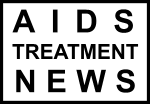"Stover explained: 'The price of second-line drugs is a major component. Any progress in reducing second-line prices will make a significant difference, as will improving first-line regimens so people can stay on first-line treatment for a lot longer.'
"When questioned about the validity of costing models that indicate that the failure to invest in ART will be more costly to countries in the long run, Stover emphasised that: 'Models unequivocally show that ART is a good investment. The benefits of ART can be clearly ascertained if you look at the number of productive years that are gained from treatment.'
"When questioned about the validity of costing models that indicate that the failure to invest in ART will be more costly to countries in the long run, Stover emphasised that: 'Models unequivocally show that ART is a good investment. The benefits of ART can be clearly ascertained if you look at the number of productive years that are gained from treatment.'
"Stover went on to explain: 'Since the year 2000, the price of ART has plummeted. If it costs $600 to treat someone for a year, which is more than the estimated cost of the World Health Organization recommendations, that’s less than the GDP per capita of most countries and certainly less than the average productivity of an adult in sub-Saharan Africa.'
"However, he added that, 'The trouble is who is paying, and who is getting the benefit. With PEPFAR and the Global Fund, they are financing health initiatives, although the benefit of these accrues somewhere else. But that’s okay, because PEPFAR and the Global Fund aren’t in the business of making money. They are in the business of public health.'"

0 comments:
Post a Comment